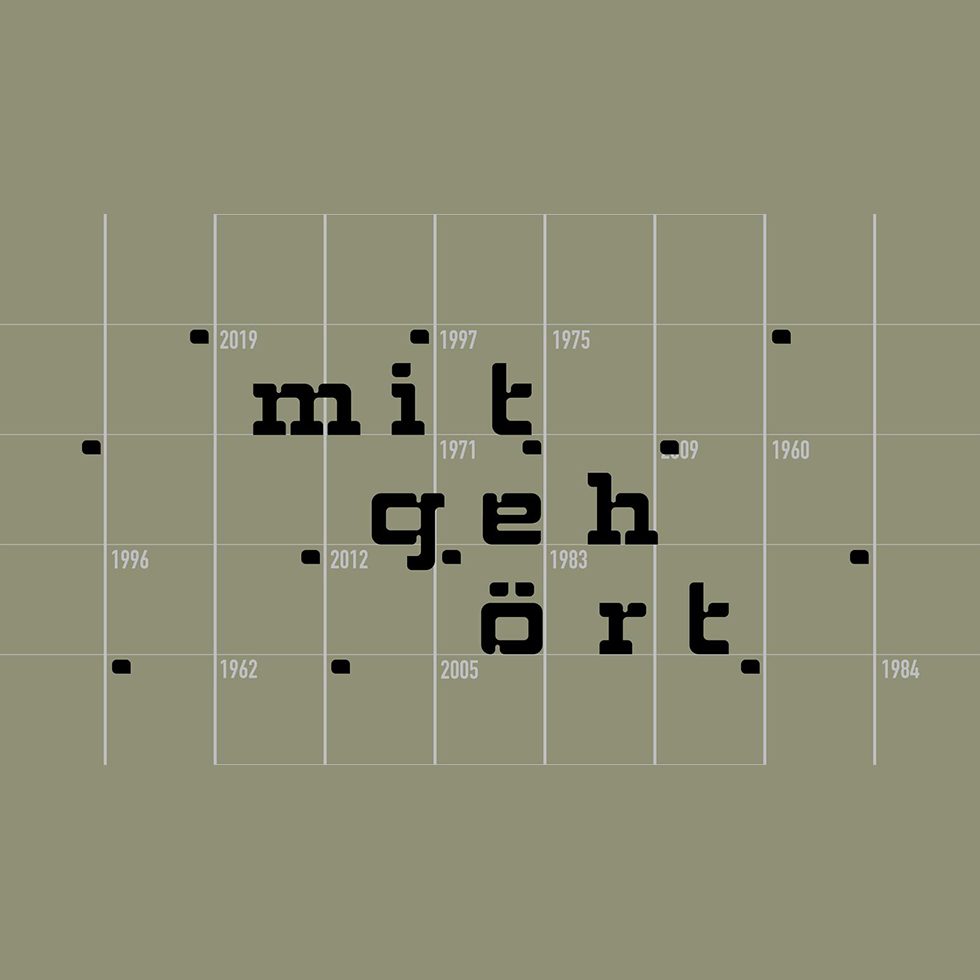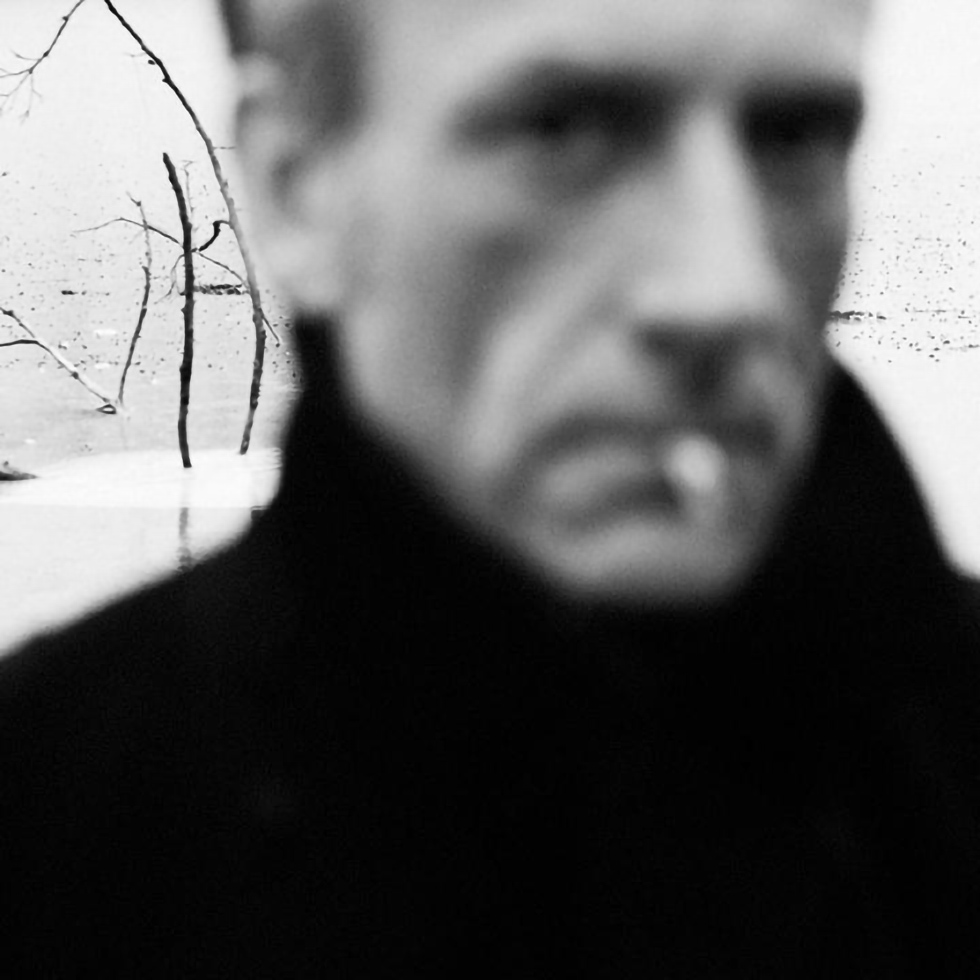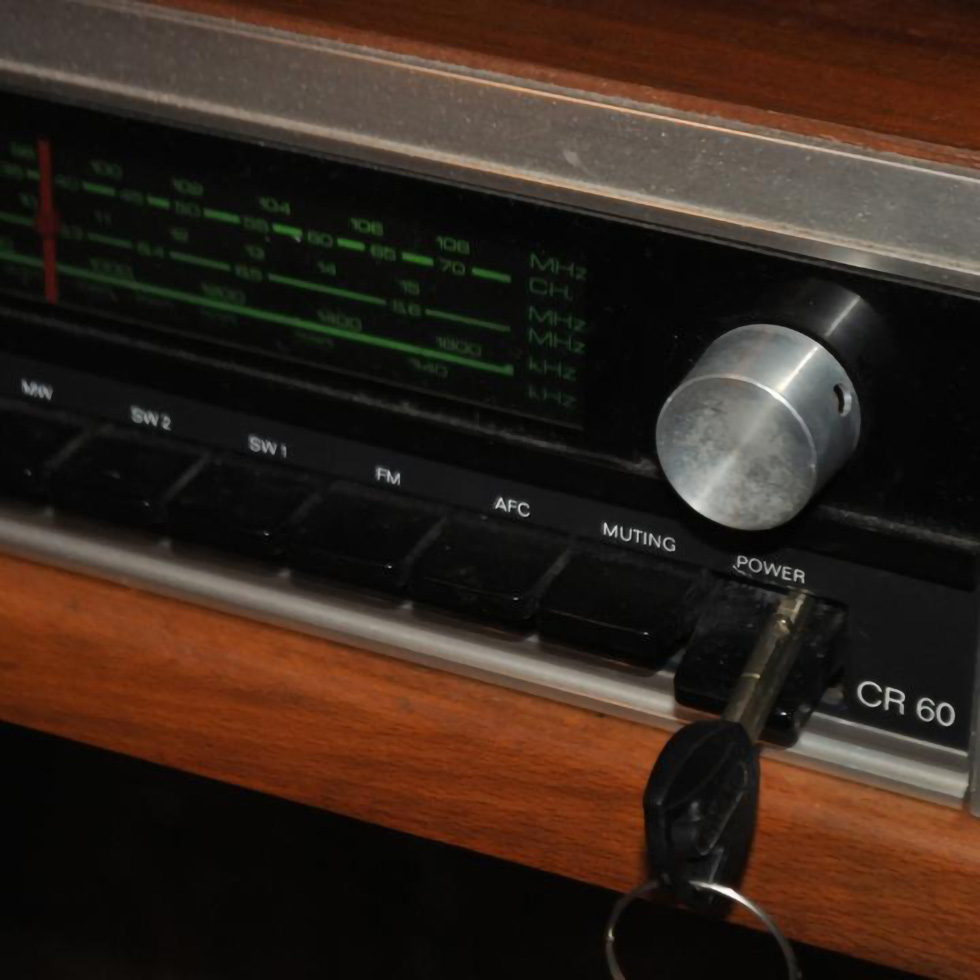mitgehört
this episode:
haru specks
vinyl preacher, düsseldorf
in his column „mitgehört“, martin raabenstein interviews various people about what drives them musically. from formative moments to current highlights: the filter swarm’s jukebox gets more colorful with each episode. this time: haru specks. with his musical theme nights, he is the world’s first playlist made of flesh and blood.
the filter reported back in april 2014 about haru specks aka diethelm kröhl’s „vinyl sermons.“ he continues to be on the road with this idea. the next one is coming up this week: on january 30th at sixpack in cologne. specks himself describes these evenings as „not a dj act, not for dancing, not background noise but an exploration of our lives and those of countless musicians and their art. the vinyl sermon is not a frontal lecture but an experiment. the theme, the songs, the space, the guests create a unique arrangement each time. interruptions are allowed, dialogue is important. because the vinyl preacher is an individual, a subject, not an all-knowing demigod, not an invincible certified expert. he is vulnerable and open to challenge.“
dear haru, would you like to introduce yourself briefly?
i was born in the early 1960s in southern germany. my parents were more or less simple workers. i muddled through life to pursue what i thought was a career in the media industry. a few years ago, i had enough and have been trying to lead a life that suits me since then. in short, i am searching for truth, beauty, and goodness.
what are you currently working on?
currently, i’m looking for a job as a waiter for two days a week to maintain health insurance. five years ago, i tried to go without health insurance for a long time, which became an expensive joke with repayments. besides that, i’m occupied with the complex of „memory, construction, identity“: yukio mishima’s „confessions of a mask“ is very inspiring here. also, lukas bärfuss, cosmology, and whether participating in a festival also covers the topic „digital gods“ – the evolution of the internet and what came of it.
what music are you currently enjoying?
on my turntable, i mostly have „isola“ by pilooski, the new album by jungle, and „snakedrill“ by wire.
let’s talk about pilooski. what appeals to you about this record?
„isola“ is a 4-track ep with four different speakers in four different languages. it reminds me of the jazz poetry experiments of the 1960s. i am fascinated by the power of the human voice. there is no more beautiful instrument.
do you generally spend much time with music?
not as much as twenty years ago. in the meantime, i don’t actively search for music as intensely but rather let music find me.
how do you prefer to listen to music? do you have a preferred listening setup?
yes, i do, and it’s all quite old. let me introduce it to you. the power button of the dual cr-60 amplifier is broken and doesn’t latch anymore. i like to block the button with a key – i have to unlock the amplifier first. the tonearm of the kenwood kp 2022 a turntable is wonderfully simple, and i like wood. my canton karat 20 speakers are super compact. at the beginning of the vinyl sermons, i dragged them around on my bike. i don’t know how many times they fell off and tumbled along the road. indestructible, loyal, and pleasant in sound.
your oldest tonal memory?
petula clark’s „downtown.“ it’s a sweet, poignant memory of my childhood. i liked the longing in her voice and the promising tone towards the end when she finally arrives in the paradise of the city to meet other people and not be lonely anymore.
and your all-time favorite? track or album?
pop group „y.“ an album that demanded everything from me to conquer it. i listened to it over and over again at 16 or 17, hung the large poster above my bed, and had troubled dreams at night. it scared me with its beauty, brutality, and enigmatic nature.
martin eugen raabenstein, first published @ das filter, 2019
In seiner Kolumne „Mitgehört“ befragt Martin Raabenstein ganz unterschiedliche Menschen, was sie musikalisch umtreibt. Von prägenden Momenten bis zu aktuellen Highlights: Die Jukebox des Filter-Schwarms wird mit jeder Folge bunter. Dieses Mal: Haru Specks. Mit seinen musikalischen Themenabenden ist er die weltweit erste Playlist aus Fleisch und Blut.
Das Filter berichtete schon im April 2014 über die „Vinylpredigten“ von Haru Specks aka Diethelm Kröhl. Unterwegs ist er mit der Idee nach wie vor. Das nächste Mal bereits diese Woche: am 30. Januar im Sixpack in Köln. Specks selbst beschreibt diese Abende als „keinen DJ-Act, nichts zum Tanzen, kein Hintergrundgeräusch sondern eine Auseinandersetzung mit unseren Leben und das der Leben unzähliger Musiker und deren Kunst. Die Vinylpredigt ist kein Frontalunterricht, sondern ein Experiment. Das Thema, die Songs, der Raum, die Gäste ergeben jedes Mal eine einzigartige Anordnung. Zwischenrufe sind erlaubt, Dialog ist wichtig. Denn der Vinylprediger ist ein Individuum, ein Subjekt, kein allwissender Halbgott, kein unangreifbarer diplomierter Checker. Er ist angreifbar und auch widerlegbar.
Lieber Haru, magst du dich zunächst kurz vorstellen?
Ich wurde Anfang der 1960er-Jahre im süddeutschen Raum geboren. Die Eltern mehr oder weniger einfache Arbeiter. Ich schummelte mich durch das Leben, um eine vermeintliche Karriere im Medienbereich zu führen. Vor einigen Jahren hatte ich dann genug davon und versuche seitdem ein Leben zu führen, welches mir behagt. In der Kurzfassung suche ich nach Wahrheit, Schönheit und Güte.
Woran arbeitest du aktuell?
Momentan suche ich für zwei Tage pro Woche einen Job als Kellner, um die Krankenversicherung zu halten. Vor fünf Jahren versuchte ich es lange ohne Krankenversicherung, was ein teurer Spaß mit den Rückzahlungen wurde. Ansonsten beschäftigt mich der Themenkomplex „Erinnerung, Konstruktion, Identität“: Yukio Mishimas „Bekenntnisse einer Maske“ ist hier sehr inspirierend. Außerdem Lukas Bärfuss, die Kosmologie und ob der Teilnahme an einem Festival auch das Thema „Digital Gods“ – die Entwicklung des Internets und was daraus wurde.
Was hörst du zur Zeit gerne?
Auf meinem Plattenteller liegen momentan meist „Isola“ von Pilooski, das neue Album von Jungle und „Snakedrill“ von Wire.
Sprechen wir über Pilooski. Was reizt dich an dieser Platte?
„Isola“ ist eine 4-Track-EP mit vier verschiedenen Sprechern in vier verschiedenen Sprachen. Es erinnert mich an die Jazz-Lyrik-Experimente der 1960er-Jahre. Ich bin von der Wirkungskraft der menschlichen Stimme begeistert. Es gibt kein schöneres Instrument.
Verbringst du generell viel Zeit mit Musik?
Nicht mehr so viel wie vor 20 Jahren. Zwischenzeitlich jage ich Musik auch nicht mehr so intensiv, sondern lasse mich eher von der Musik finden.
Wie hörst du denn am liebsten Musik? Hast du eine bevorzugte Abhöre?
Ja, die habe ich, und es ist alles schon sehr alt. Ich stelle sie dir vor. Die Power-Taste des Dual-CR-60-Verstärkers ist hinüber und rastet nicht mehr ein. Ich mag es, die Taste mit einem Schlüssel zu blockieren – ich muss den Verstärker erst aufschließen. Der Tonarm des Plattenspielers Kenwoods KP 2022 A ist so wunderbar schlicht, und ich stehe auf Holz. Meine Canton Karat 20 sind superkompakte Boxen. Zu Anfang der Vinylpredigten schleppte ich sie mit dem Fahrrad durch die Gegend. Ich weiß nicht, wie oft mir die Dinger runterfielen und die Straße entlang purzelten. Unverwüstlich, treu und angenehm vom Sound.
Deine älteste tonale Erinnerung?
Petula Clarks „Downtown“. Es ist eine süße, schmerzliche Erinnerung meiner Kindheit. Ich mochte die Sehnsucht in ihrer Stimme und das Verheißungsvolle gegen Ende, wenn sie endlich im Paradies der Großstadt ankommt, um andere Menschen zu treffen und nicht mehr einsam ist.
Und dein All-time-favourite? Track oder Album?
Pop Group „Y“. Ein Album, das alles von mir abverlangte, um es zu erobern. Ich hörte es mit 16 oder 17 Jahren immer und immer wieder, hängte das große Poster über mein Bett und träumte nachts schlecht. Es machte mir Angst in seiner Schönheit, Brutalität und Enigmatik.
martin eugen raabenstein, erstveröffentlicht @ das filter, 2019



